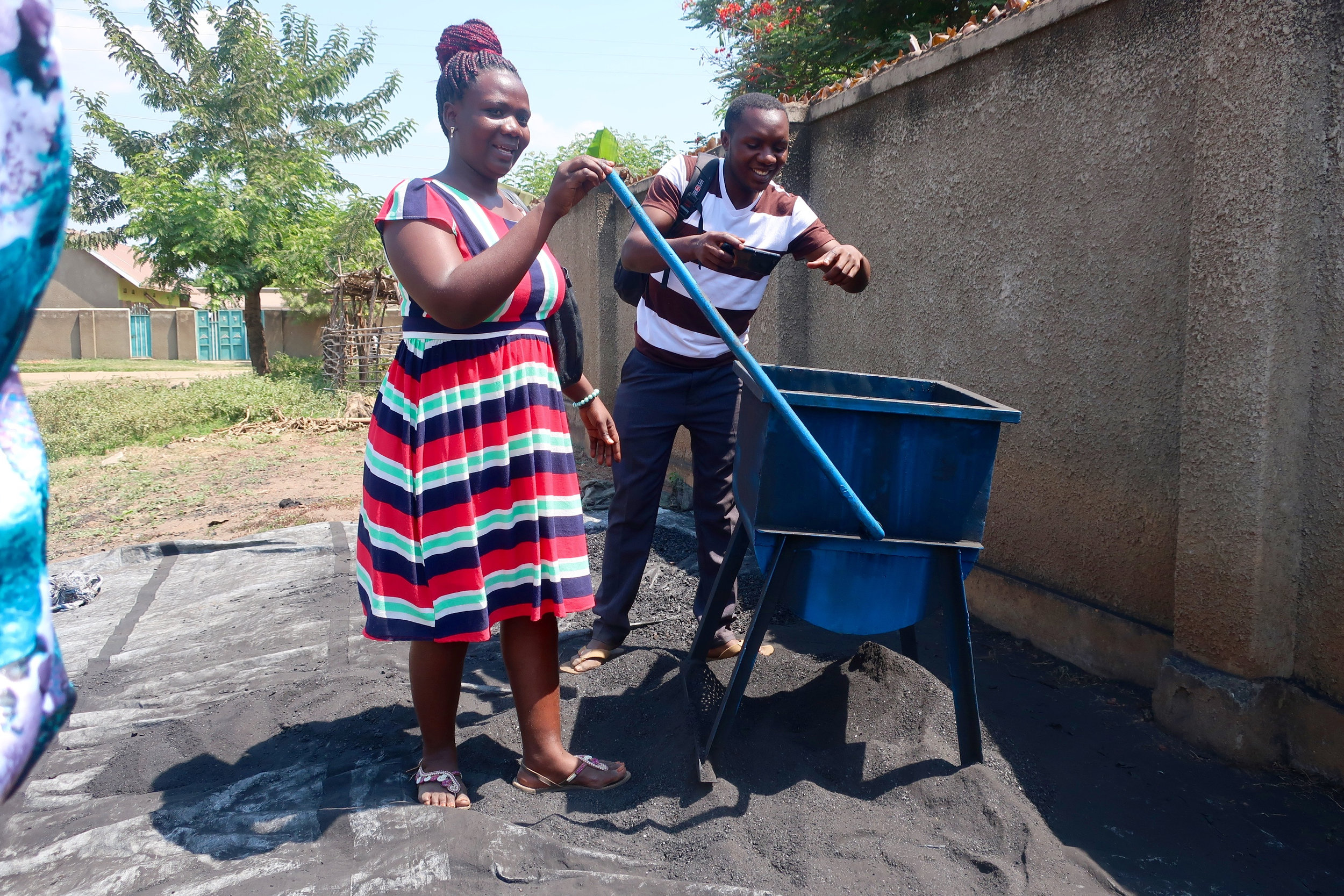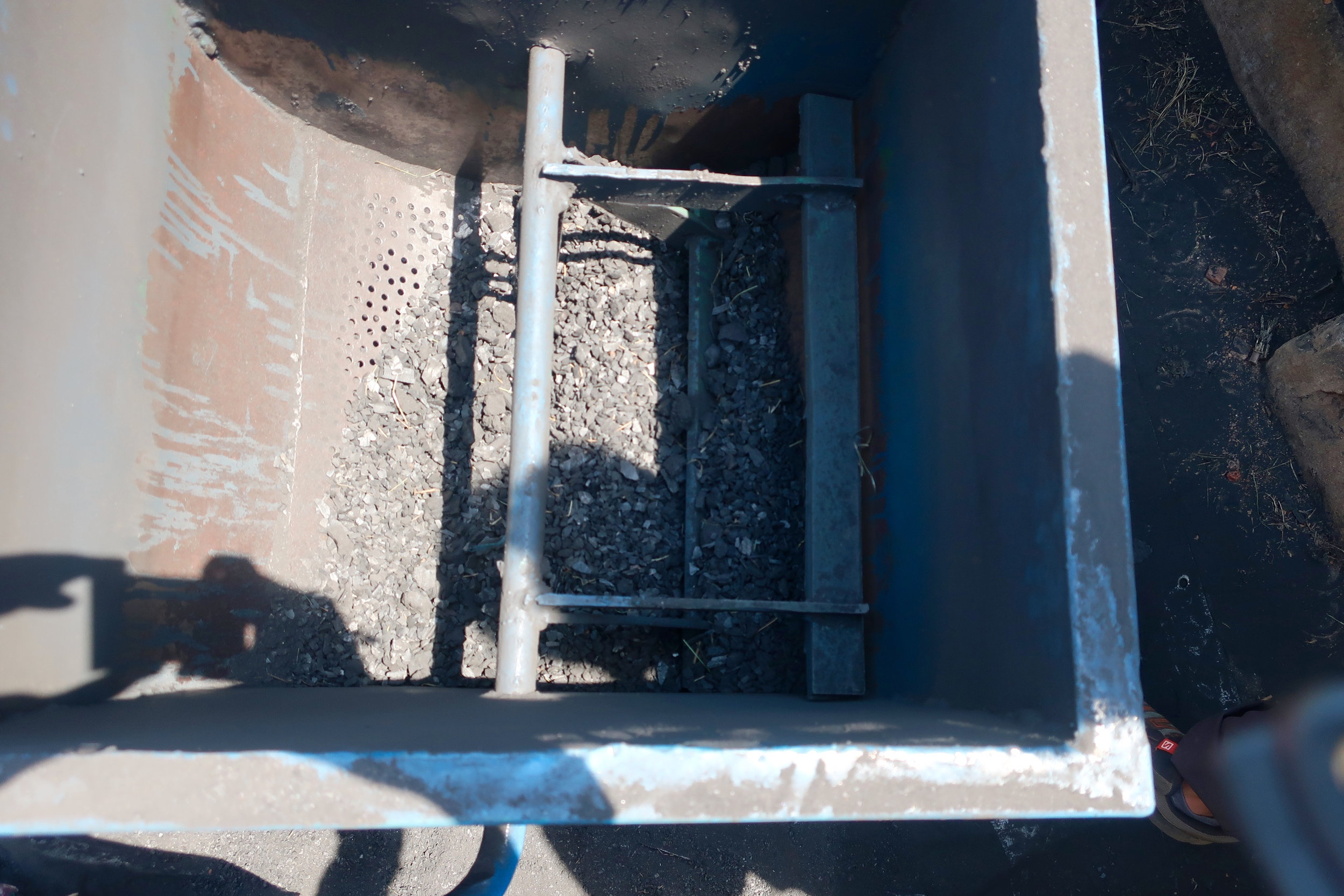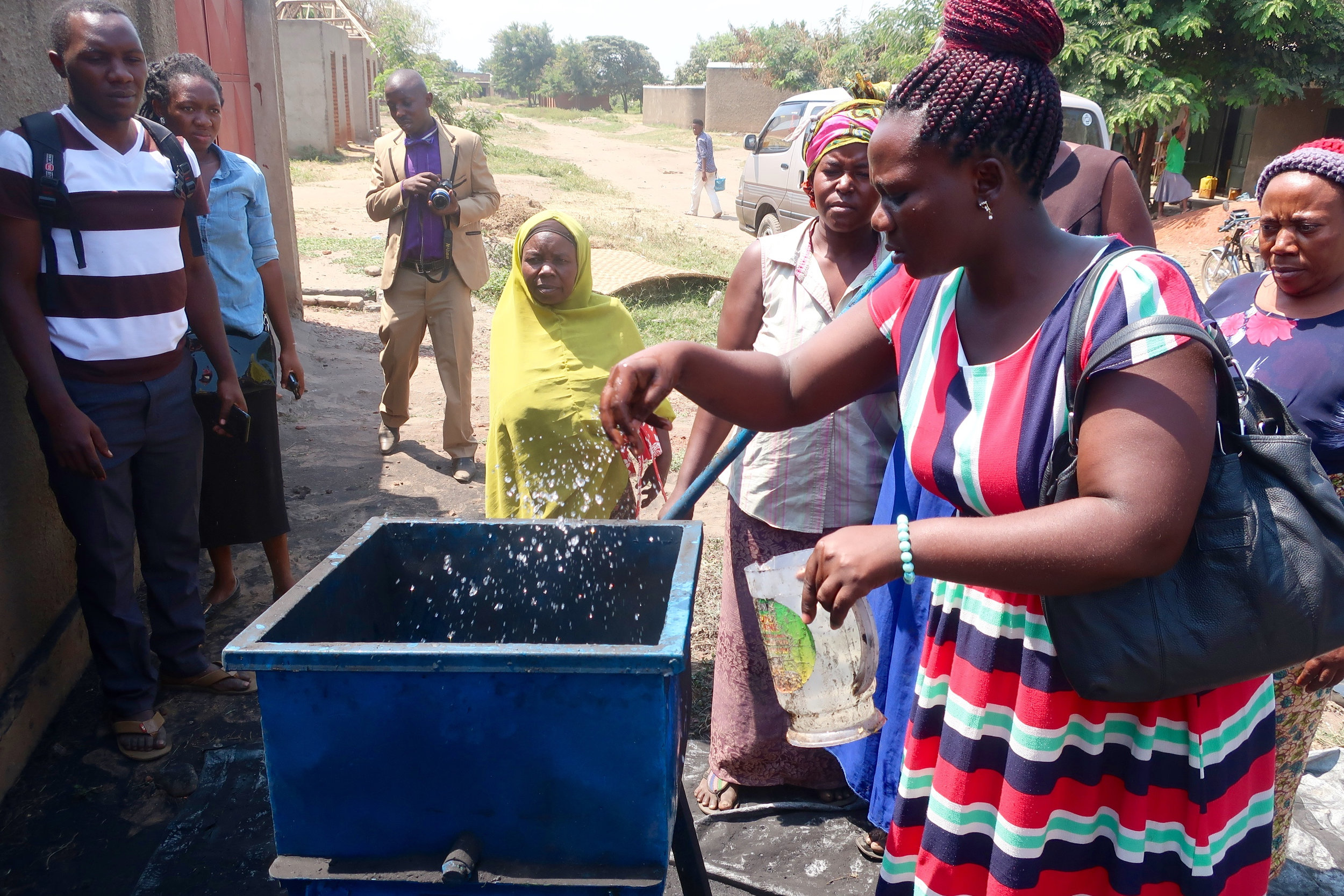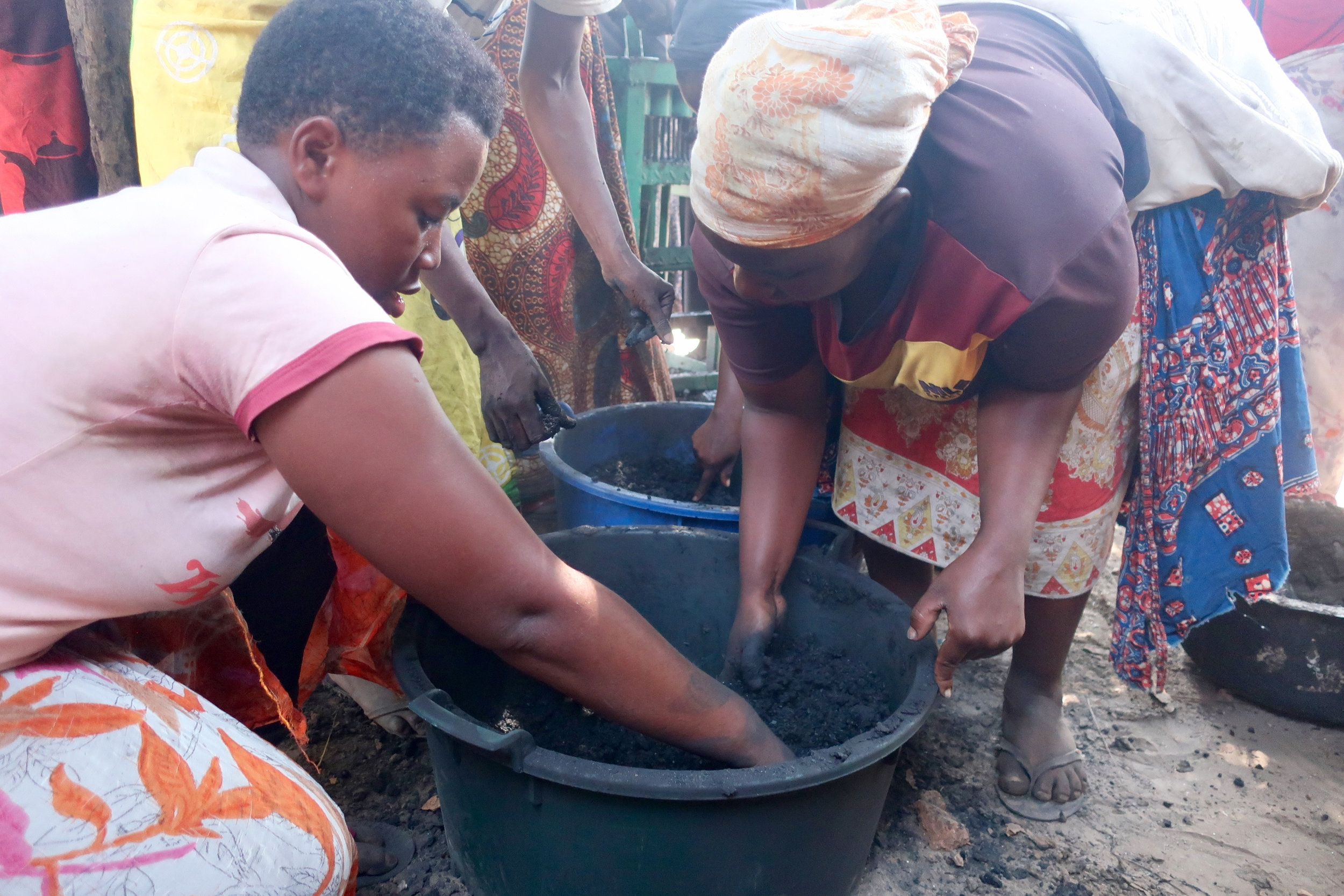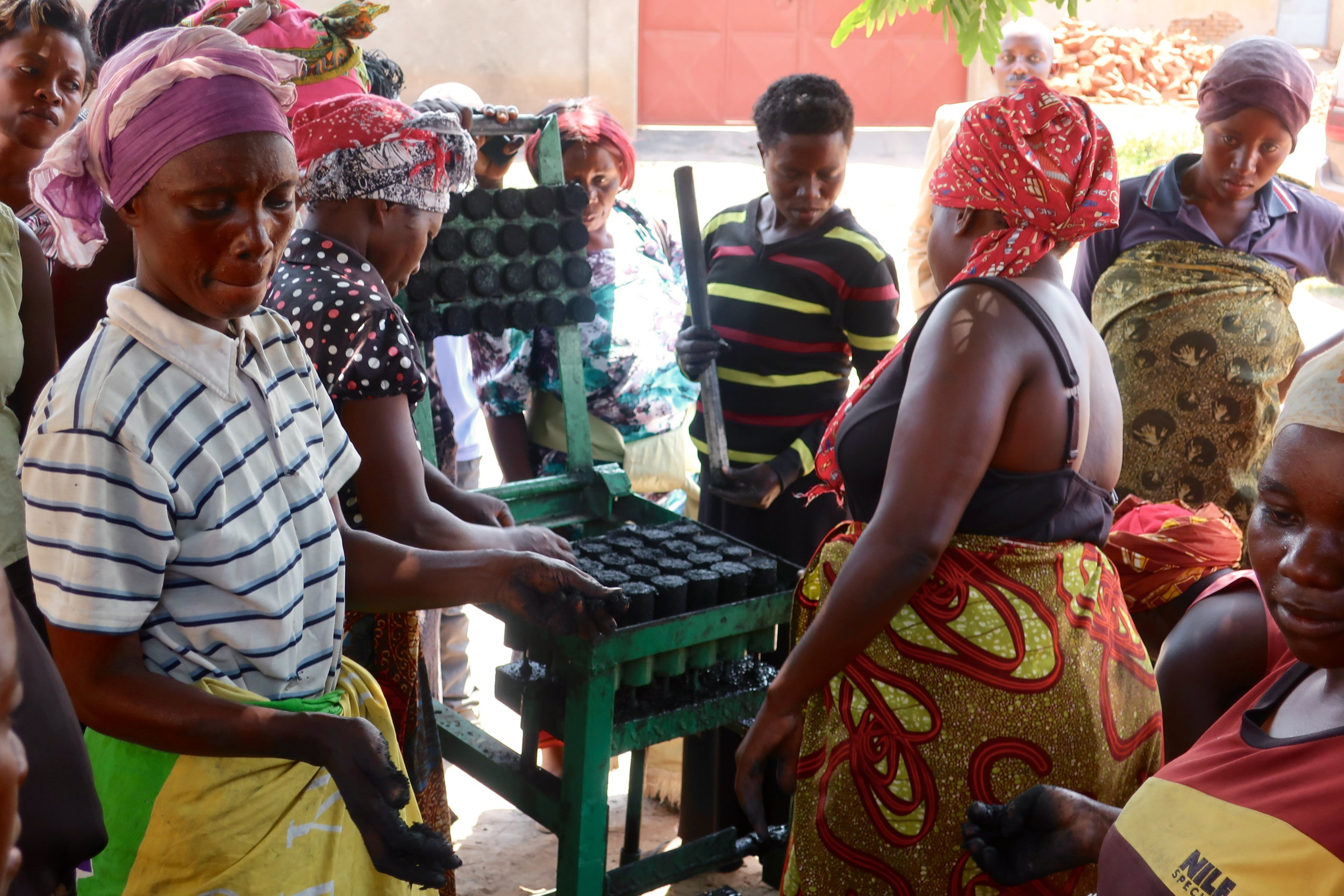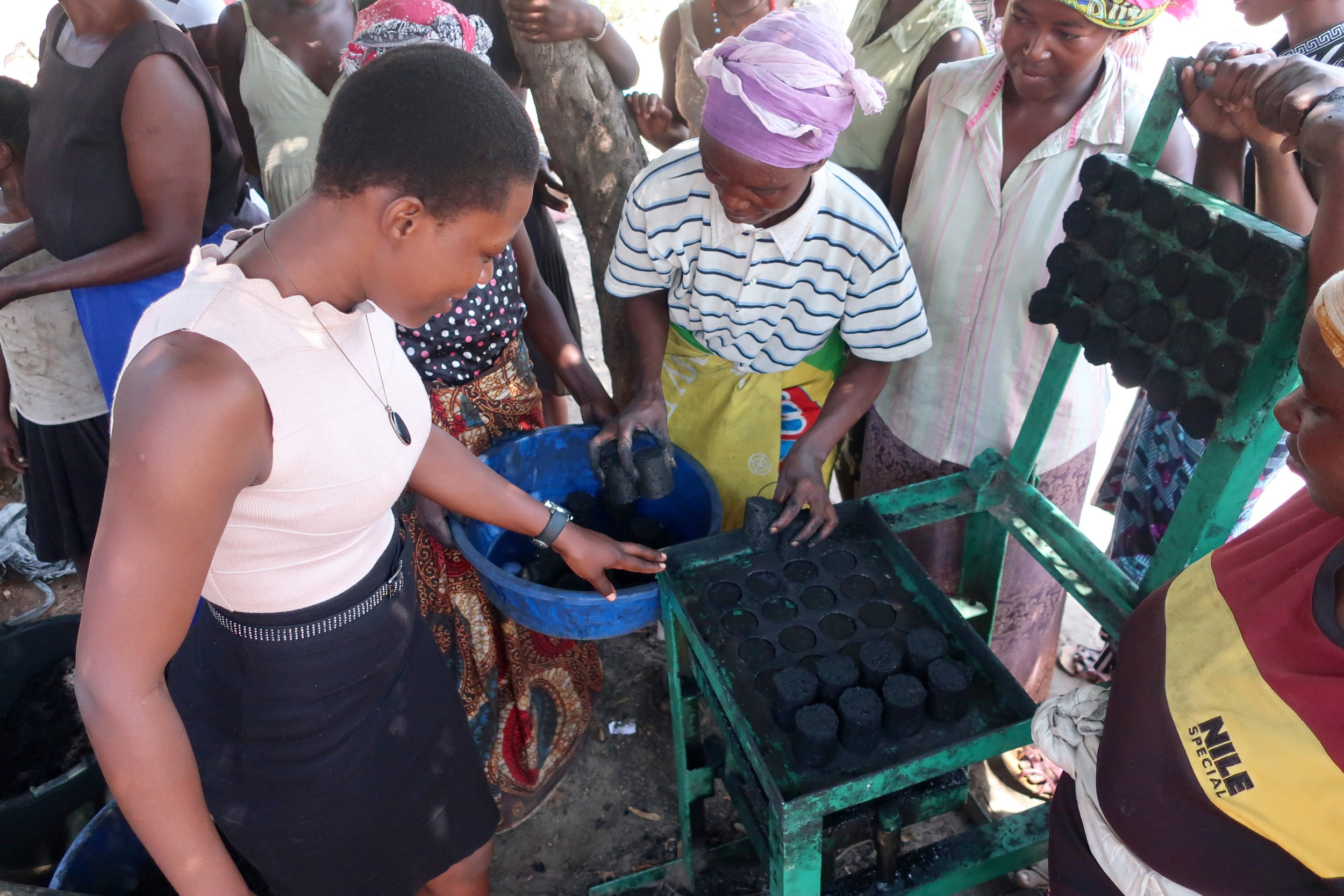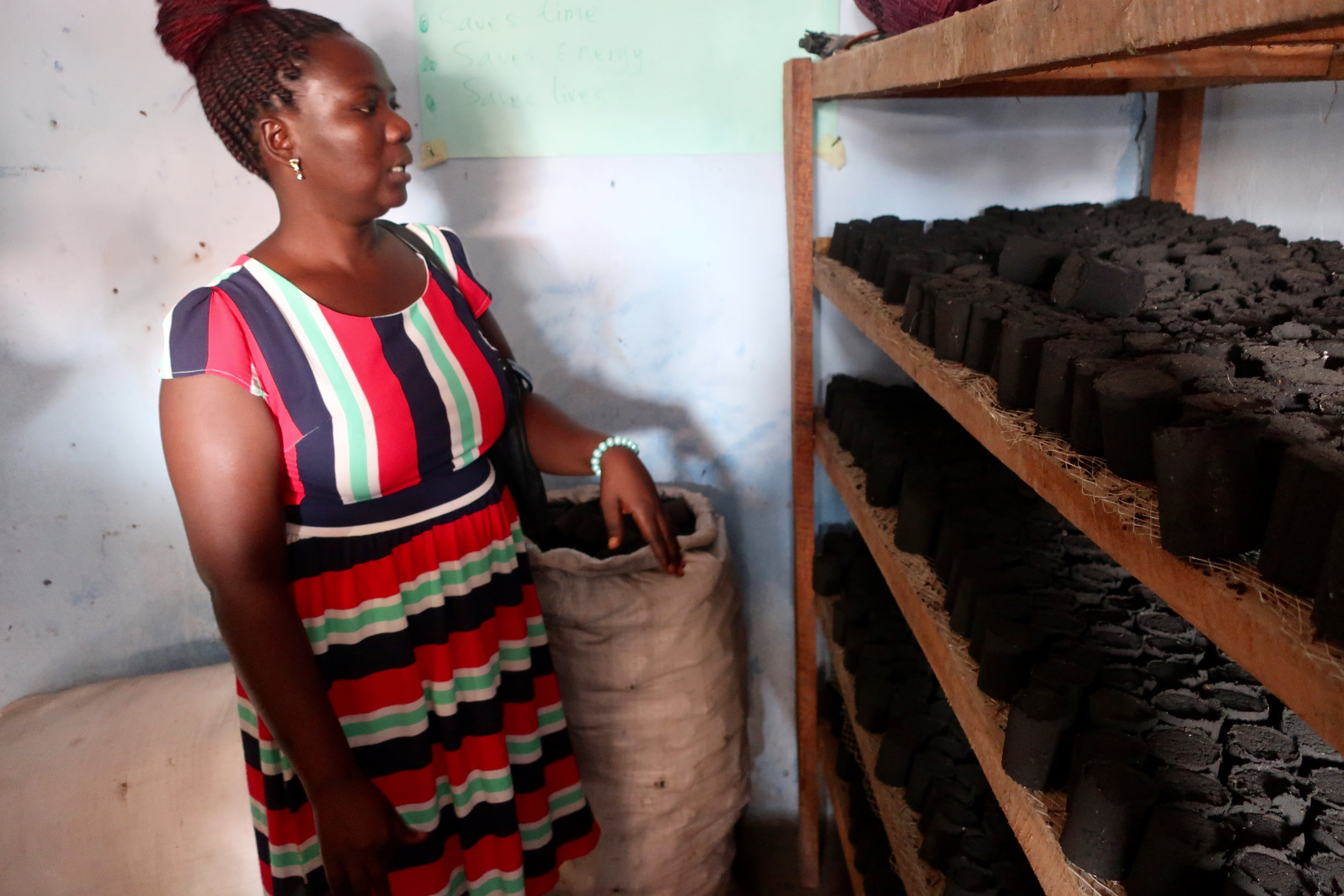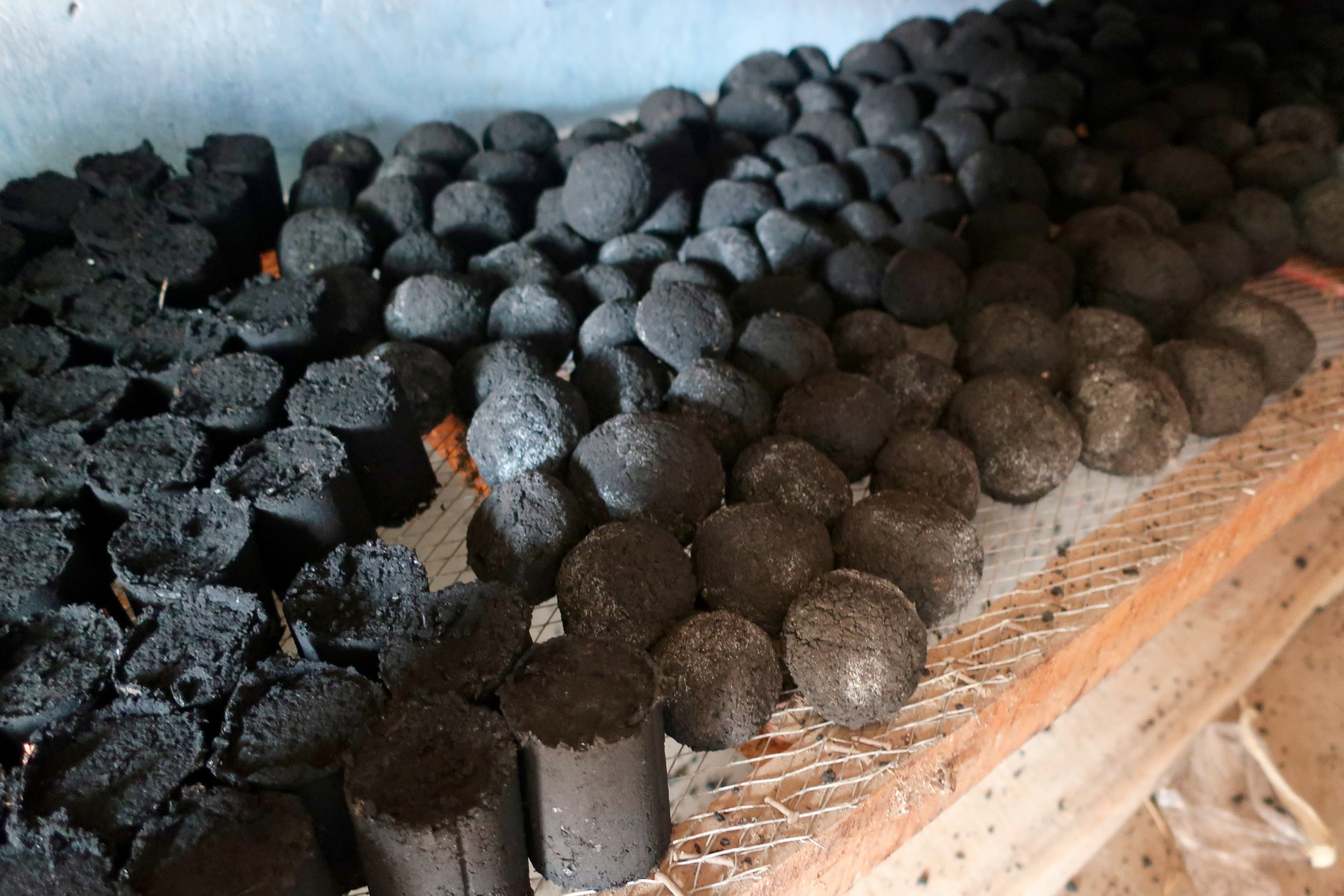GUEST BLOG BY TAYLOR WASHBURN AND EMILY CHANDLER, GLOBAL AMBASSADORS FOR ROCKFLOWER
In the early afternoon of July 21st, following our visit with Hope For Rural Women (HORUWO), we made our way to the headquarters office for the Rwenzori United Group for Life Improvement (RUGLI) in downtown Kasese. We met Biira Mary, the leader of RUGLI, and a few other members at their office where they introduced themselves and gave us an introduction to their organization. RUGLI originally started as a group savings scheme in which women would pool together savings and then make low-interest loans to members of the group. This pool of capital allowed Mary to organize the women into a bio-briquette cooperative, a business that not only empowers women in the Kasese community but is also a sustainable business model for an environmentally-sound product. RUGLI employs women making bio-briquettes as an alternative cooking fuel to charcoal and wood.
With our awareness of climate change and the need for our generation and future generations to be better stewards of the earth, we were immediately struck by the potential of this eco-conscious business. Our excitement was strengthened by our growing awareness of the impact of drought on the region. Though only our second day in Kasese we were well acquainted with the consequences of drought: there was no running water at the hotel, the roads were dry and dusty, and the crops we had seen were failing. Kasese is located at the base of the Rwenzori Mountains on the border between Uganda and the Democratic Republic of the Congo. Climate change is wreaking havoc on this region of the world, which has a long history of chaos and instability. The bio-briquettes made by RUGLI are a creative and innovative approach to combating climate change, creating economic opportunities for women and ensuring access to food and water.
Mary makes a compelling case for an alternative to charcoal and wood, the primary fuel sources for most Ugandans. Both charcoal and firewood are drivers of deforestation in the region, which contribute to climate change by reducing the capacity of forests to take up carbon dioxide from the atmosphere and altering regional ecosystems. In addition to the environmental impacts, for those who cook with firewood and charcoal, there are associated health concerns. Typically cooking and meal preparation is the work of women and girls in a home, who spend hours toiling over charcoal and wood fires cooking dishes like posho (a thick corn porridge), potatoes and rice. The smoke produced by the cooking fires is an irritant to their respiratory systems and vision. This is one of many stressors to the lives of women and girls in rural Uganda. Creating an environmentally-sound alternative fuel source that generates less smoke, such as the briquettes, has the potential to fundamentally change the health of communities and the local environment for the better.
RUGLI produces three types of briquettes from materials that are typically considered waste. The briquettes produce less smoke (in some cases none), last longer and burn hotter than other fuel sources. After an introduction to their work and the need for it, we visited the facility where they make the different briquettes and met the larger RUGLI team. During our visit, they were making a briquette from the charcoal dust, cassava flour, and water. They gather dust left at the bottom of charcoal sacks from their neighbors or from the shops of charcoal vendors; the dust is otherwise thrown out as waste. The charcoal dust, cassava flour and water are mixed into a paste and then patted into briquettes by hand or pounded into a simple machine with 24 briquette molds that Rockflower funded RUGLI to acquire. Once in the machine, the briquettes are forcibly compacted, then pushed out of the molds and transferred to storage to dry. RUGLI also produces two other types of briquettes, one made from sawdust and paper and the other from bio-waste, such banana leaves and corn cobs, which are often abundant and otherwise discarded. While we did not see the production of either of these briquettes, the sawdust briquettes were being used to fuel one of the cook fires.
Though our visit took place on a Saturday, one would never know this was not a typical workday. Dozens of women and girls were there to greet us, all hard at work making briquettes. Some were making the initial charcoal and cassava flour paste, others were pounding the paste into molds, and still others transferred the newly formed briquettes to the drying racks. Currently, RUGLI is limited by the amount of equipment (one briquette mold-machine and one machine to grind components) and by storage space for briquettes to dry. As they continue to grow, they hope to purchase more equipment and secure a larger storage and drying facility. It was terrific to see so many people actively and enthusiastically engaged in their work. They were covered in sweat and charcoal dust but that did not dampen the pride and ownership RUGLI members take in their work.
RUGLI members also sell the briquettes and share savings as a cooperative. In addition to making the product, members effectively run an advertising campaign by sharing their product with friends and family, creating a market for the briquettes in the area. To buy a large sack of charcoal costs a family 50,000 UGX (~$15) whereas an equivalent amount of briquettes costs 35,000 UGX (~$10) and, because of the efficiency with which the briquettes burn, it will last longer than a sack of charcoal. Though a difference of $5 may not sound like much, for those who live on less than $1 per day, it is significant.
During our visit to the RUGLI facility, Mary and her staff briefed us on their progress to date. Their savings scheme and community-based marketing work are serving them well. They are currently having trouble making briquettes from wasted plant-based material because of the grazing laws in the Kasese region. Livestock is not allowed to roam and graze, so families use banana leaves and other food waste to feed livestock, making it more difficult for RUGLI to acquire these materials. RUGLI is a growing organization with hopes of expanding their production. Additionally, they are training others in how to make this environmentally-sound alternative fuel source in their communities. We were particularly impressed by the poise and professionalism Mary brings to her team and by the community she has created in this work. We were so impressed, in fact, that we asked Mary to help us facilitate our upcoming meeting with potential Rockflower partners in the region.
After an efficient and informative two hours with RUGLI, we said goodbye to Mary and the larger RUGLI membership. We were energized and invigorated by their work, and our heads were spinning with opportunities for this project to be replicated in other communities and/or with other Rockflower partners. RUGLI represents much of what Rockflower aims to do: create global peace prosperity through investment in women and girls.



